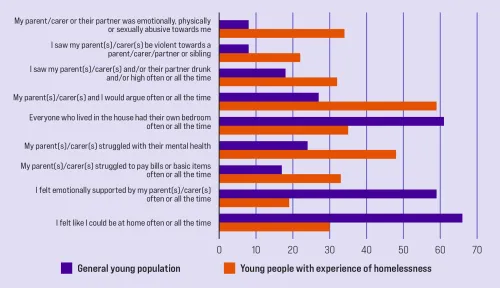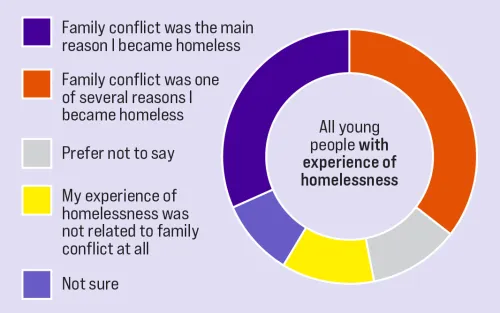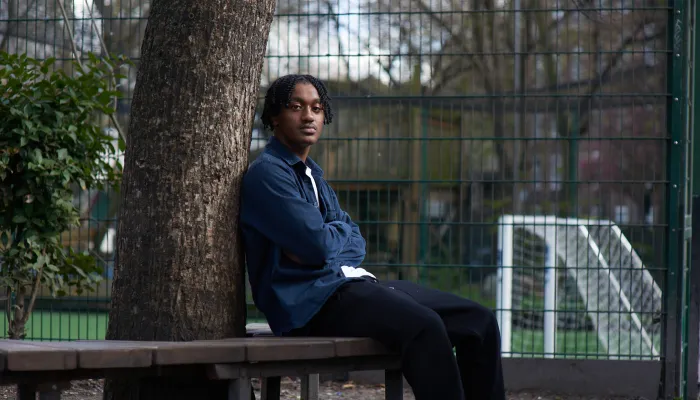Family breakdown is the main cause of youth homelessness. Our research shows that while conflict happens in all families and is triggered by similar topics, it is far more likely to escalate in households that are already facing multiple challenges. This can in turn lead to a young person being made to leave or choosing to leave home before they are ready to.
Most young people (aged between 16 and 25) supported by Centrepoint became homeless because they left or were made to leave their family household before they were ready to. Using a national representative poll of young people, a survey of young people with experience of homelessness, interviews with young people with experiences of homelessness and interviews and focus groups with mediation and other professionals, this report explores multi-faceted and complex associations between intergenerational family conflict and youth homelessness. The report focuses on why and how family conflict escalates to the point where a young person is no longer welcome or safe in their family home – and what can be done to prevent this.
Several of Centrepoint’s partner organisations helped disseminate the call for interviews and the survey for young people with experience of homelessness, and Opinium delivered the national poll.
Background factors
- Young people with experience of homelessness were far more likely to report parental mental health problems and substance use difficulties, financial pressure, and overcrowding risk than general population young people.
- Each of these factors was associated with the reported frequency of arguments, witnessing or being subjected to domestic abuse, and having been at risk of not having somewhere to spend the night due to circumstances at home.
These factors overlap and interact. As one Centrepoint psychologist explained:
Mental health, substances, and domestic abuse are like a toxic triangle (that) just escalates everything.

Conflict triggers
- Young people with experience of homelessness were more likely to report conflict triggers than the general young population.
- Several young people interviewed for the research had to leave home because of their sexual orientation or gender identity.
- Nearly two-thirds (72 per cent) of young people with experience of homelessness indicated arguing with their parent(s) or carer(s) often or all the time compared to just over a quarter (27 per cent) of the general population.
Leaving home
- Nearly one in five (19 per cent) of the general young population indicate they have been at risk of not having somewhere to spend the night due to a problem in their household.
- Only just over one in ten (12 per cent) young people with experience of homelessness say their experience of homelessness was unrelated to family breakdown.
- Just under a third (32 per cent) of young people with experience of homelessness got accommodation through the council or a charity, and many young people and professionals shared experiences of local authority gatekeeping.

Preventing family breakdown
- Welfare reform and cuts to public services have put families at greater risk of breakdown.
- Intergenerational or family mediation, a voluntary process during which young people and a parent or carer work with a trained professional to resolve conflict, is an effective way of reducing youth homelessness and associated costs in the local authorities where the service is available.
Early intervention programs such as Upstream offer tailored 1:1 support to children who are identified as being at risk of family breakdown and homelessness. According to one mediation professional, Upstream:
Is a great way to introduce mediation, family support and homelessness prevention within schools, and I think it should be the norm (across the UK) because we are really capturing young people when there are emerging issues.

